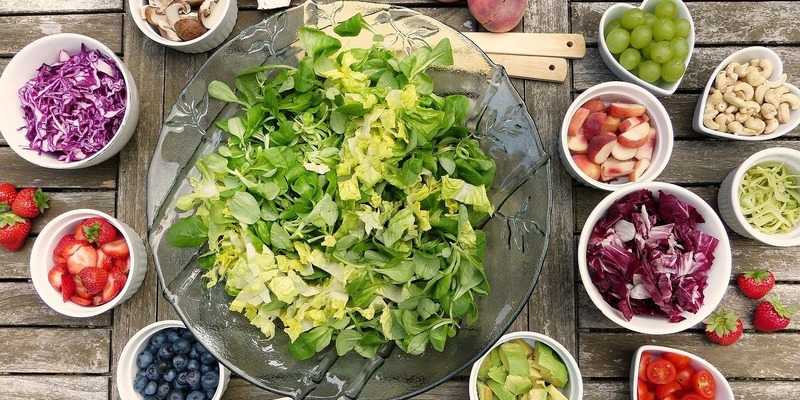Xylitol - A natural or chemical sugar alternative?

The word xylitol makes one think of a chemically compounded substance. But the manufacturers of xylitol have written the word "natural" on all products with xylitol that can be found on store shelves. And indeed, it is classified as a natural sweetener.
Is xylitol really natural? Or is it just another wolf in sheep's clothing like high fructose corn syrup?
What is Xylitol?
Xylitol was discovered in the late 1890s. It wasn't until the 1930s that xylitol was synthesized in a pure form, similar to what we use today. It was used as a sugar substitute in some countries during World War II when there were sugar shortages.
Today it can be found on the shelves of health food stores and also in a number of products such as chewing gum, mouthwash, florid treatments, toothpaste and also in some medicines.
Xylitol belongs to a class of substances called "polyols," better known as sugar alcohols. Sugar alcohols are neither sugar nor alcohol, but have a chemical structure that has similarities between sugar and alcohol. There are a number of other sugar alcohols - including maltitol, erythritol, mannitol and sorbitol.

The fibers of fruits and vegetables naturally contain xylitol. It can be obtained from various berries, oats, corn husks, sugar cane and birch. This fermented sweetener is made from whole plant pulp. However, it must undergo extensive treatment and processing to become the sugar found on the shelves of health food stores.
It is hotly debated whether this sugar-like substance should actually be called a "natural" sweetener.
Benefits of Xylitol
This oddly named sweetener actually has a number of known benefits.
Dental health
It has been documented since the 1970s that xylitol can help prevent tooth decay when used regularly. Research on xylitol for dental health did not stop in the 1970s. A quick review of the literature reveals a veritable wealth of journals showing the dental benefits of xylitol. Xylitol not only prevents the growth of bacteria, but also helps remineralize already decayed teeth.
Osteoporosis
For this reason, scientists speculate that xylitol may help prevent and treat osteoporosis. There are a number of articles demonstrating these effects in rats - but no known study has been done in humans.
Ear infections
There are numerous studies supporting the reduction of ear infections with the use of xylitol. This is likely due to the antibacterial properties of xylitol.
Yeast and bacteria in the gut
Xylitol is a prebiotic. This means it promotes good gut flora (helpful microorganisms that live in your digestive tract). Sugar, on the other hand, promotes the growth of unhealthy bacteria and yeast in your gut. Xylitol is a fantastic option for those dealing with chronic yeast infections like candida. Unlike some artificial sweeteners (like Splenda and aspartame), xylitol does not promote the growth of yeast in the gut.
Blood sugar & insulin
Xylitol is broken down more slowly than sugar. In fact, it is not even completely broken down in our system. As such, it does not cause a rapid rise in blood sugar levels. Xylitol is usually a wonderful substitute for diabetics as it has little effect on glucose and none on insulin.
Infection
Some scientists have indicated that xylitol increases WBCs (especially netrophils). These are cells that help us fight infections.
What are the downsides of xylitol?
With all the potential positives of using xylitol, you might be wondering: what's the catch?
For one thing, as mentioned earlier, xylitol is a processed food. We don't eat xylitol in its natural whole-food form. This has sparked a lot of debate about the healthfulness of xylitol. Some argue that as a processed food, xylitol cannot be part of a healthy diet. Others argue that it is a perfect sugar substitute because of its many benefits.

Xylitol can also have the side effect of causing gastrointestinal problems in some people. Since xylitol is not completely broken down in your body, it can have a laxative effect. Other reported complaints include bloating, abdominal pain, and cramping.
Despite the abdominal discomfort and gastrointestinal distress experienced by some individuals, there are no known serious side effects of xylitol consumption.
Many companies that market xylitol make their xylitol from genetically modified corn.
It should also be noted that xylitol is dangerous to dogs. It can be toxic and have dangerous consequences.
Nutrition and effects on blood sugar
Xylitol has the same approximate sweetness as table sugar, but with 1/3 fewer calories. 1 gram of xylitol has only 2.4 calories to the 3.87 calories of sugar. Xylitol has the same amount of carbohydrates per serving as sugar. But remember that xylitol is not well broken down and metabolized in our bodies and therefore has very little effect on blood sugar and insulin levels. For this reason, xylitol ranks 7-13 (depending on the source) on the glycemic index.
How to replace sugar with xylitol
Since xylitol has about the same sweetness as sugar, it's fairly easy to substitute in existing recipes. Here are a few things you might want to consider if you decide to give xylitol a try:
- The same action that prevents yeast and bacteria from multiplying in relation to xylitol also prevents xylitol from working in yeast-based breads.
- Be sure to grind xylitol when a recipe does not contain a significant amount of moisture. Otherwise, your final product will be grainy. A food processor or coffee grinder work wonderfully for this.
- Xylitol absorbs more moisture than sugar, so you may need to increase the liquid content.
- Refrigeration is sometimes necessary when using xylitol. The feeling you get with a strong mint. This feeling can be reduced or eliminated by reducing the xylitol and using other sweeteners.
- If you want to use xylitol as a brown sugar substitute, add 2 teaspoons of molasses per 1 cup of xylitol.
- Xylitol acts as a preservative and increases the shelf life of baked goods.
- Xylitol will not caramelize or brown your baked goods like sugar.
More information
Always consult your healthcare provider to ensure that the information displayed on this page applies to your personal circumstances.


















